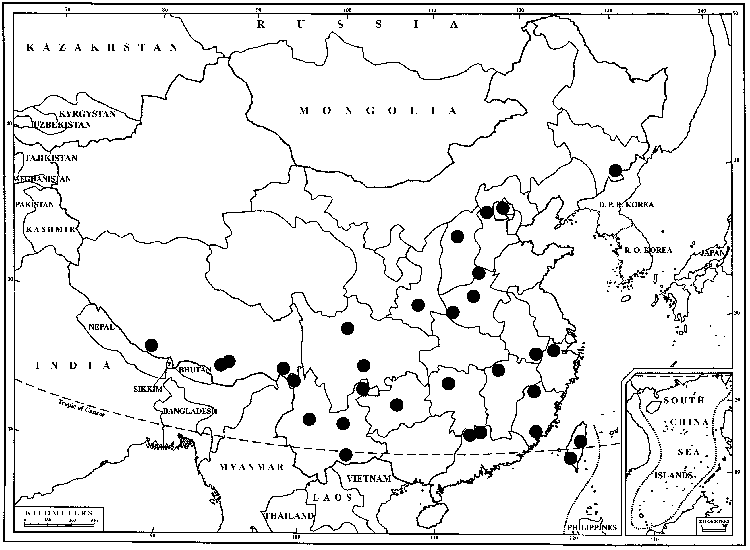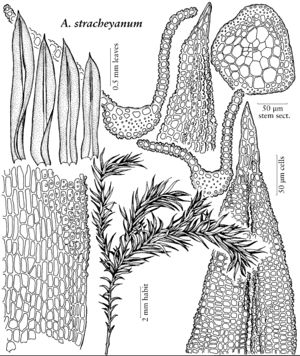Difference between revisions of "Anoectangium stracheyanum"
J. Linn. Soc., Bot., suppl. 1: 31. 1859,.
FNA>Volume Importer |
imported>Volume Importer |
||
| Line 47: | Line 47: | ||
|publication year= | |publication year= | ||
|special status= | |special status= | ||
| − | |source xml=https:// | + | |source xml=https://bibilujan@bitbucket.org/aafc-mbb/fna-data-curation.git/src/bb6b7e3a7de7d3b7888a1ad48c7fd8f5c722d8d6/coarse_grained_fna_xml/V27/V27_750.xml |
|subfamily=Pottiaceae subfam. Barbuloideae | |subfamily=Pottiaceae subfam. Barbuloideae | ||
|genus=Anoectangium | |genus=Anoectangium | ||
Revision as of 22:35, 27 May 2020
Leaves dense, hiding the stem, long-lanceolate to linear-elliptical and commonly weakly constricted beyond the short-sheathing base, (1–)1.5–1.8(–2) mm; apex narrowly acute to acuminate, occasionally blunt, apiculus narrowly triangular; margins 1-stratose; costa regularly excurrent into a short or long, stout mucro of several cells. Specialized asexual reproduction absent. Sporophytes absent in range of flora.
Habitat: Calcareous and noncalcareus rock, wet areas, spray of falls
Elevation: moderate elevations (300-900 m)
Distribution

N.Y., N.C., Ohio, Tenn., e, c Asia.
Discussion
Anoectangium stracheyanum was previously treated as a synonym of A. aestivum (R. H. Zander 1977), but further study indicates that it is a good match for the Asian A. stracheyanum, in the weakly wasp-waisted, narrow leaves with a rather strong, commonly multicellular apiculus, and papillose-crenulate or weakly denticulate basal laminal margins. The “wasp-waist” referred to by Asian authors is usually just a hint of constriction just beyond the short-sheathing leaf base, and many leaves are merely straight-sided. Collections from Maine identified as A. peckii are Amphidium mougeotii.
Selected References
None.
